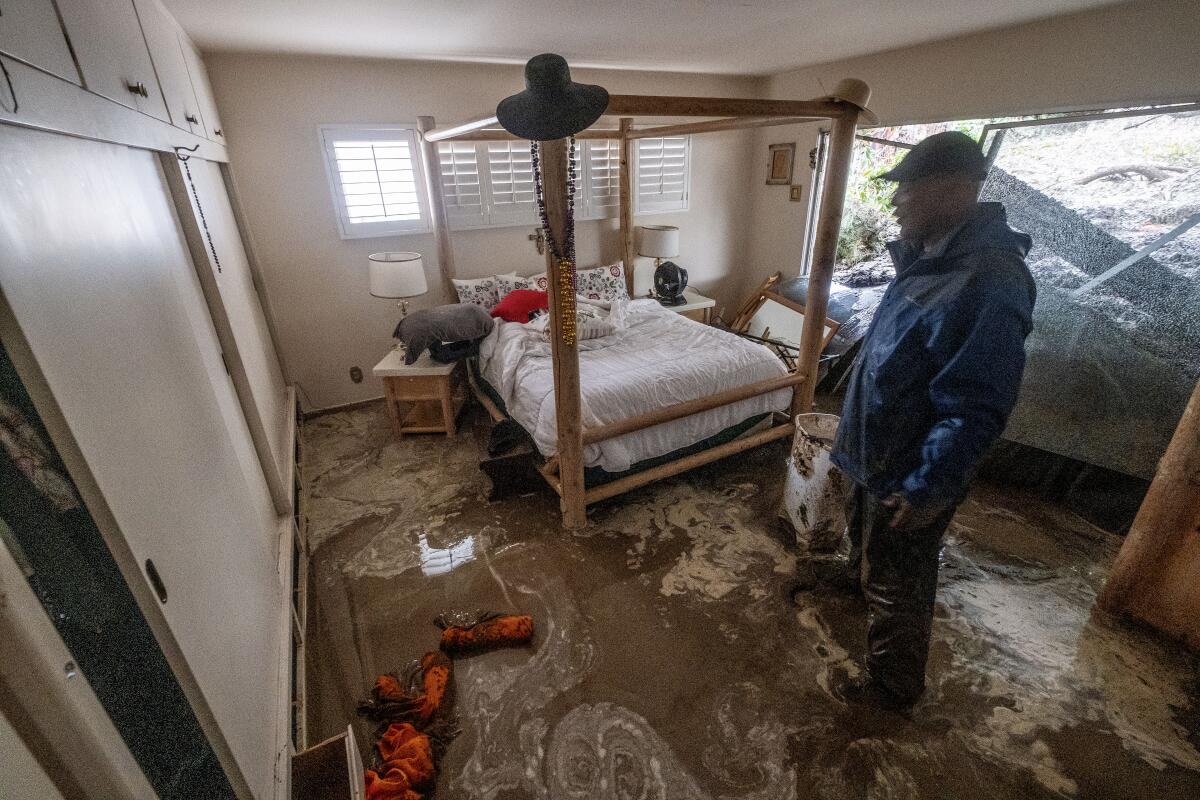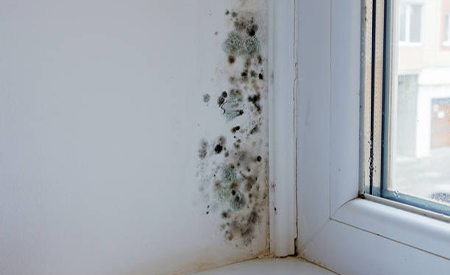Trusted Water Damage Repair Services for Residential and Commercial Properties
Trusted Water Damage Repair Services for Residential and Commercial Properties
Blog Article
The Refine of Water Damages Cleanup: Guaranteeing Your Home Is Recovered Effectively
Water damage can be a difficult difficulty for house owners, necessitating a precise and organized cleanup process to bring back safety and performance. An extensive evaluation is crucial to recognize the extent of the damage and establish the suitable removal procedures. Following this, effective water extraction strategies play a critical role in alleviating more damage. However, the nuances of drying, sterilizing, and eventual reconstruction are just as vital and frequently overlooked. Recognizing these stages can make a considerable distinction in the result of your home's restoration, triggering a closer consider what each action involves.
Examining the Damages
Upon discovering water damages, the initial step is to thoroughly examine the level of the effect. This preliminary assessment is vital, as it helps figure out the necessary steps for effective clean-up and repair. Begin by inspecting the impacted locations, including walls, ceilings, floorings, and individual possessions, to identify the resource of the water breach, whether from flooding, leaks, or condensation.
Documenting the damage is important for both insurance claims and preparing restoration initiatives - damage restoration services. Use photos and composed notes to capture the severity of the damages, keeping in mind any kind of afflicted structural components and products. Pay unique attention to locations that might not be promptly visible, such as behind walls and under rugs, as concealed dampness can bring about further issues, including mold development
In addition, assess the timeline of the water exposure. Inevitably, a thorough assessment lays the groundwork for a successful water damage cleanup procedure, ensuring that all affected areas are addressed successfully and completely.
Water Removal Methods

Specialists usually use completely submersible pumps for larger quantities of water, which can quickly minimize flooding in cellars or other influenced areas. For smaller amounts, wet/dry vacuum cleaners are usually utilized to remove residual moisture from rugs and tough surface areas. In addition, using portable extractors enables targeted elimination in constrained spaces or areas with delicate materials.
In circumstances of polluted water, such as sewer or floodwater, progressed removal strategies might entail using biohazard tools to make sure safety and conformity with wellness laws. High-powered removal tools are crucial in reducing water retention in architectural products, which can result in mold growth and structural damage otherwise attended to quickly.
Ultimately, the effectiveness of water extraction techniques plays a critical duty in the general success of the water damage clean-up process, laying the groundwork for subsequent repair initiatives.
Drying and Dehumidification
As soon as standing water has actually been effectively drawn out, the following critical phase in the water damage cleanup procedure is drying out and dehumidification. This action is vital to protect against further damage and mold growth, which can take place within 24 to two days in moist settings.
To accomplish reliable drying, specific equipment such as industrial-grade air moving companies and dehumidifiers is used. Air moving companies flow air throughout damp surfaces, improving evaporation prices, while dehumidifiers minimize humidity degrees in the air, promoting a helpful setting for drying. The mix of these devices makes certain that moisture is extracted from furnishings, floors, and wall surfaces, allowing them to completely dry completely.
It is essential to check the drying process very closely. Experts typically utilize wetness meters to assess the wetness content in different materials, ensuring that all impacted areas get to acceptable dry skin degrees. This precise approach helps to avoid concealed moisture pockets that might bring about structural damages or unhealthy mold and mildew growth.

Cleansing and Sterilizing
After the drying and dehumidification phase is complete, the following crucial step in water damages cleaning is cleaning and sterilizing the affected areas. This process is critical to stop the growth of mold, microorganisms, and various other microorganisms that grow in damp atmospheres.
The cleansing phase generally includes getting rid of any debris, dirt, and impurities from surface areas making use of specialized cleaning up agents. For hard surface areas, a combination of soap and water or business cleansing items is usually used. Soft materials, such as upholstery and carpetings, may require extra substantial cleaning techniques, consisting of steam cleansing or deep removal techniques, to ensure thorough cleanliness.

Disinfecting complies with cleaning, using EPA-approved anti-bacterials to eliminate dangerous microbes. This action is important, particularly in areas that might have entered contact with floodwaters or sewer, as these sources can present serious health and wellness threats.
Furthermore, it is necessary to resolve any kind of remaining smells, which may require the usage of odor neutralizers or sophisticated strategies like ozone therapy. Proper cleaning and sterilizing not only recover the safety and hygiene of your home however additionally prepared for effective reconstruction and repair services in subsequent phases of the water damages cleaning process.
Reconstruction and Repair Services

When the analysis is total, remediation efforts can begin. This normally includes repairing or changing broken materials, guaranteeing that all job adheres to local building regulations and requirements. As an example, if drywall has been jeopardized, it will require to be removed and replaced with brand-new material. Additionally, flooring might need similar interest, depending on the degree of water exposure.
It is vital to involve skilled reconstruction experts during this procedure, as they possess the knowledge to take care of intricate fixings effectively. Moreover, they can aid mitigate potential future concerns, such as mold growth or architectural instability, hence making sure linked here a habitable and risk-free living environment. Inevitably, effective repair and repair work restore the home's stability and improve read more its general worth.
Final Thought
To conclude, the process of water damage clean-up is essential for restoring a home to its pre-damage problem. Each stage, from evaluating the damage to carrying out effective water extraction techniques, complied with by thorough drying out, sanitizing, and required repairs, plays a necessary role in making sure security and conformity with structure standards. Reliable execution of these actions not only mitigates prompt damage yet also enhances the long-lasting honesty and value of the residential or commercial property.
Water damages can be a difficult difficulty for property owners, necessitating a careful and structured clean-up procedure to bring back safety and security and performance. Inevitably, an extensive evaluation lays the groundwork for a successful water damages cleanup procedure, ensuring that all impacted areas are attended to effectively and thoroughly.
Effective water removal strategies are important in reducing damage and avoiding more problems complying with a water invasion event.In final thought, the procedure of water damage cleanup is essential for restoring a home to its pre-damage problem. Each stage, from assessing the damages to applying reliable water extraction methods, adhered to by thorough drying, disinfecting, and needed repair work, plays a necessary role in ensuring security and compliance with structure requirements.
Report this page